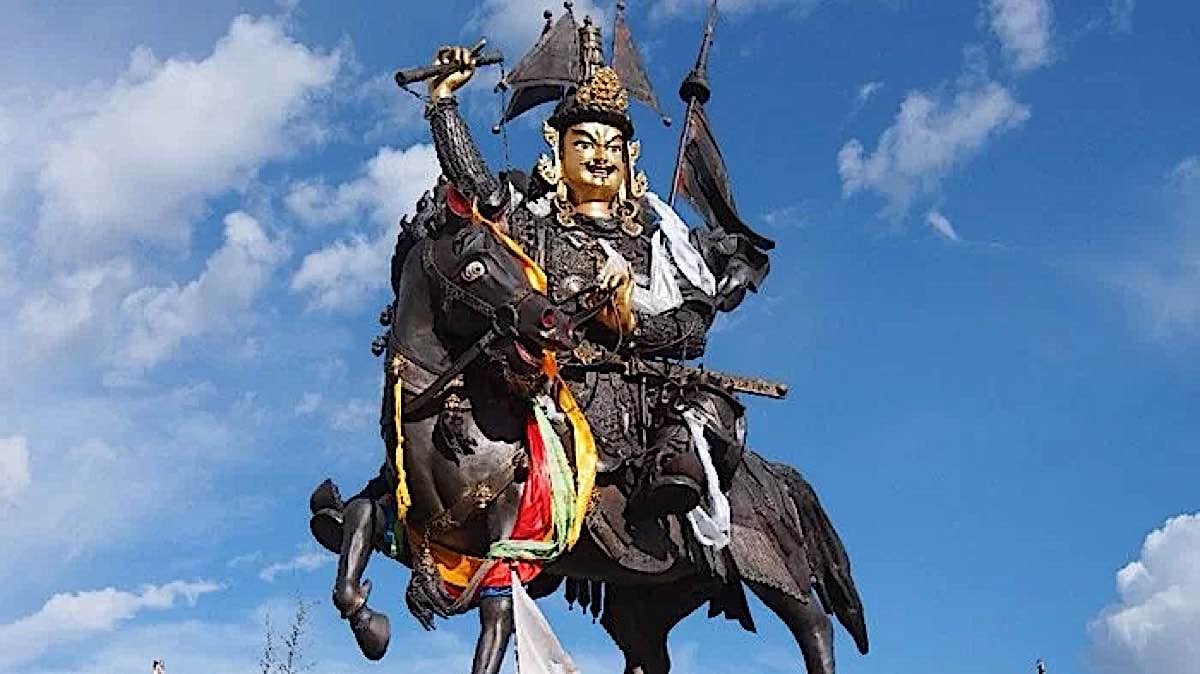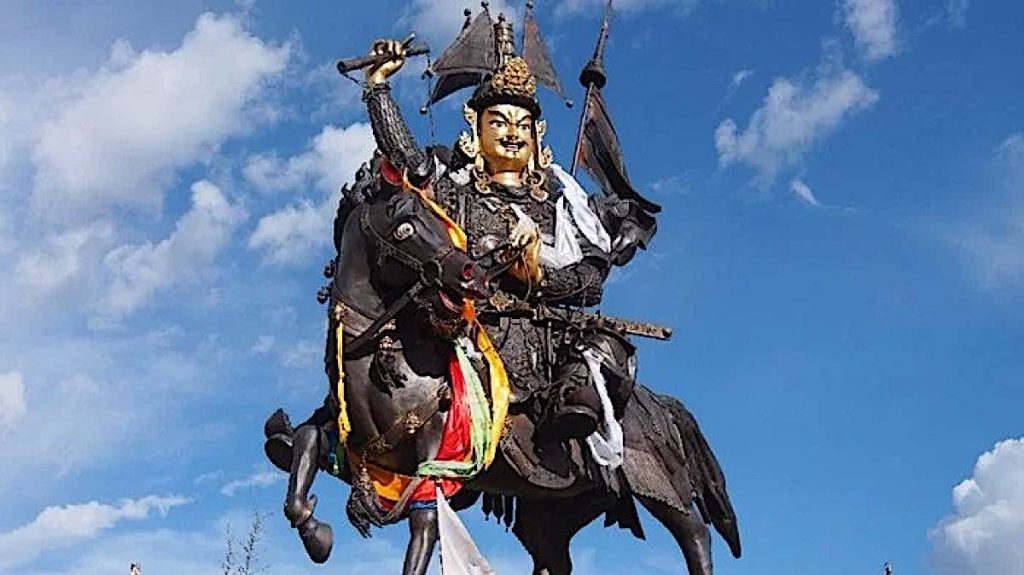
Abhaya Sutta
Fearless
Translated from the Pali by Thanissaro Bhikkhu
Then Janussoni the Brahman went to the Blessed One and, on arrival, exchanged courteous greetings with him. After an exchange of friendly greetings and courtesies, he sat to one side. As he was sitting there he said to the Blessed One: “I am of the view and opinion that there is no one who, subject to death, is not afraid or in terror of death.”
The Blessed One said: “Brahman, there are those who, subject to death, are afraid and in terror of death. And there are those who, subject to death, are not afraid or in terror of death.
“And who is the person who, subject to death, is afraid and in terror of death? There is the case of the person who has not abandoned passion, desire, fondness, thirst, fever, and craving for sensuality. Then he comes down with a serious disease. As he comes down with a serious disease, the thought occurs to him, ‘O, those beloved sensual pleasures will be taken from me, and I will be taken from them!’ He grieves and is tormented, weeps, beats his breast, and grows delirious. This is a person who, subject to death, is afraid and in terror of death.
“Furthermore, there is the case of the person who has not abandoned passion, desire, fondness, thirst, fever, and craving for the body. Then he comes down with a serious disease. As he comes down with a serious disease, the thought occurs to him, ‘O, my beloved body will be taken from me, and I will be taken from my body!’ He grieves and is tormented, weeps, beats his breast, and grows delirious. This, too, is a person who, subject to death, is afraid and in terror of death.
“Furthermore, there is the case of the person who has not done what is good, has not done what is skillful, has not given protection to those in fear, and instead has done what is evil, savage, and cruel. Then he comes down with a serious disease. As he comes down with a serious disease, the thought occurs to him, ‘I have not done what is good, have not done what is skillful, have not given protection to those in fear, and instead have done what is evil, savage, and cruel. To the extent that there is a destination for those who have not done what is good, have not done what is skillful, have not given protection to those in fear, and instead have done what is evil, savage, and cruel, that’s where I’Mural depicte
m headed after death.’ He grieves and is tormented, weeps, beats his breast, and grows delirious. This, too, is a person who, subject to death, is afraid and in terror of death.
“Furthermore, there is the case of the person in doubt and perplexity, who has not arrived at certainty with regard to the True Dhamma. Then he comes down with a serious disease. As he comes down with a serious disease, the thought occurs to him, ‘How doubtful and perplexed I am! I have not arrived at any certainty with regard to the True Dhamma!’ He grieves and is tormented, weeps, beats his breast, and grows delirious. This, too, is a person who, subject to death, is afraid and in terror of death.
“These, Brahman, are four people who, subject to death, are afraid and in terror of death.
“And who is the person who, subject to death, is not afraid or in terror of death?
“There is the case of the person who has abandoned passion, desire, fondness, thirst, fever, and craving for sensuality. Then he comes down with a serious disease. As he comes down with a serious disease, the thought does not occur to him, ‘O, those beloved sensual pleasures will be taken from me, and I will be taken from them!’ He does not grieve, is not tormented; does not weep, beat his breast, or grow delirious. This is a person who, subject to death, is not afraid or in terror of death.
“Furthermore, there is the case of the person who has abandoned passion, desire, fondness, thirst, fever, and craving for the body. Then he comes down with a serious disease. As he comes down with a serious disease, the thought does not occur to him, ‘O, my beloved body will be taken from me, and I will be taken from my body!’ He does not grieve, is not tormented; does not weep, beat his breast, or grow delirious. This, too, is a person who, subject to death, is not afraid or in terror of death.
“Furthermore, there is the case of the person who has done what is good, has done what is skillful, has given protection to those in fear, and has not done what is evil, savage, or cruel. Then he comes down with a serious disease. As he comes down with a serious disease, the thought occurs to him, ‘I have done what is good, have done what is skillful, have given protection to those in fear, and I have not done what is evil, savage, or cruel. To the extent that there is a destination for those who have done what is good, what is skillful, have given protection to those in fear, and have not done what is evil, savage, or cruel, that’s where I’m headed after death.’ He does not grieve, is not tormented; does not weep, beat his breast, or grow delirious. This, too, is a person who, subject to death, is not afraid or in terror of death.
“Furthermore, there is the case of the person who has no doubt or perplexity, who has arrived at certainty with regard to the True Dhamma. Then he comes down with a serious disease. As he comes down with a serious disease, the thought occurs to him, ‘I have no doubt or perplexity. I have arrived at certainty with regard to the True Dhamma.’ He does not grieve, is not tormented; does not weep, beat his breast, or grow delirious. This, too, is a person who, subject to death, is not afraid or in terror of death.
“These, Brahman, are four people who, subject to death, are not afraid or in terror of death.”
When this was said, Janussoni the Brahman said to the Blessed One: “Magnificent, Master Gotama! Magnificent! Just as if he were to place upright what was overturned, to reveal what was hidden, to show the way to one who was lost, or to carry a lamp into the dark so that those with eyes could see forms, in the same way has Master Gotama — through many lines of reasoning — made the Dhamma clear. I go to Master Gotama for refuge, to the Dhamma, and to the Sangha of monks. May Master Gotama remember me as a lay follower who has gone to him for refuge, from this day forward, for life.”
[1] Heart Sutra translation from Venerable Thich Nhat Hanh.
[4] Foreward to Alexandra David-Neel’s The Superhuman LIfe of Gesar of Ling.

